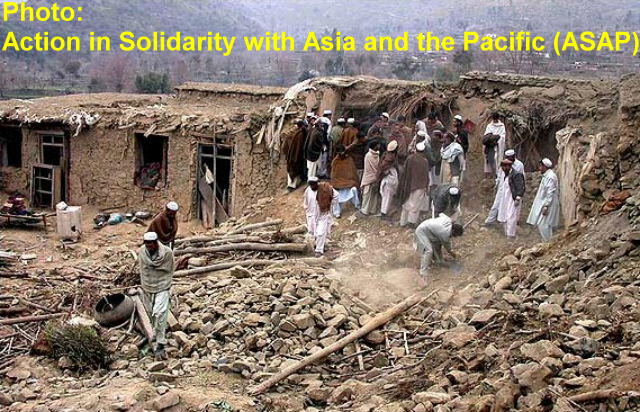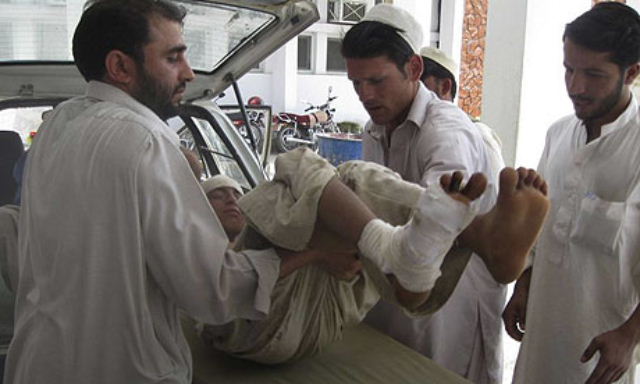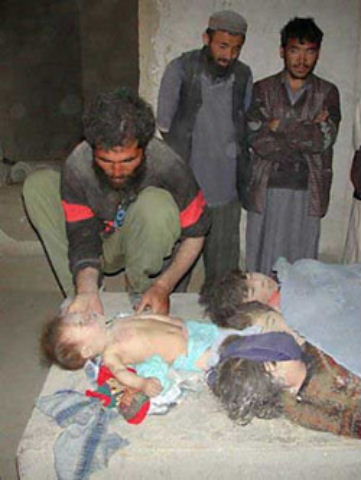Open letter to Foreign Secretary David Miliband on Afghanistan.
Paul O'Hanlon | 23.07.2009 19:03 | Anti-militarism | Anti-racism | Terror War | South Coast | World



Granton
Edinburgh
Midlothian
Scotland
Friday 24th July 2009
The Foreign Secretary
The Rt Hon David Miliband MP
Foreign and Commonwealth Office
London
SW1A 2AH
Dear Mr Miliband
I am greatly concerned about the deteriorating situation in Afghanistan. Almost every day this month there has been a British fatality, which now totals some 188.
The loss of Afghan life is not known precisely but surely runs in to many thousands. The bombing of Afghanistan has resulted in a shocking number of deaths from attacks on wedding parties. It should be pointed out that just one B52 bomber can deliver 31 tons of bombs – that is the weight of 3 double decker buses. This ordnance is dropped on people who live in flimsy shelters and maybe out in the open. Over 100 people were killed in one strike in the Western Afghan town of Farah in May and this is only one of many such incidents.
According to the UN Afghanistan has some of the world's worst health indicators, with an average life expectancy of only 43. About one in five children dies before his or her fifth birthday
US President Barack Obama said the immediate target was to steer Afghanistan through elections but really it must be asked if elections held under an occupying power have any validity. The Vienna Convention forbids an occupying power to hold elections. When the Soviet Union held elections in its former satellite states in Eastern Europe they were rightly condemned – why should the elections in Afghanistan be any different?
The question must surely be asked – what is the difference between the Soviet occupation of Afghanistan in the 1980’s and the current American led occupation of the same country? The Afghan people are fiercely nationalistic and bitterly resent the unwanted presence of invaders.
If the
West is really so interested in bringing democracy through free elections why don’t they start with their client states like Saudi Arabia, Egypt, Uzbekistan, Kuwait etc?
I agree with author and historian Mark Curtis who asserts that states do not go to war for humanitarian reasons, which are irrelevant to them. As I understand it the real reason for the American led occupation of Afghanistan is to make the country safe for the building of an oil and gas pipeline from Turkmenistan through Afghanistan down to Pakistan and a warm water port.
The Taliban were not always our enemies – in December 1997 the US oil giant UNOCAL invited Taliban leaders to Sugarland, Texas in the United States for talks to construct a gas pipeline from Turkmenistan across Afghanistan to Pakistan. In March 2001 Sayed Rahmatullah Hashimi, an adviser to the Taliban leader Mullah Omar, was flown to Washington DC where he met members of the Directorate of Central Intelligence and the State Department. Western support for the Mujahadeen in Afghanistan in the 1980’s led to the rise of the Taliban. Former President George W Bush originally thought the Taliban was a rock band - now they are the devil incarnate – is all this not another example of the absurdities of Western foreign policy?
Afghanistan has few natural resources except perhaps Opium of which it is now the world’s biggest producer. Is this of concern to Western Governments or do they indirectly profit from the drugs trade?
Afghanistan is the graveyard of empires and I feel that Britain should withdraw in line with the wishes of the majority of the population and in order to preserve both British and Afghan lives,
Yours Sincerely,
Mr Paul O’Hanlon
Here is a brief record of some of the Afghan casualties over the last two years:
(Source: The International News Safety Institute (INSI))
2007
August 2: The Afghan government says around 100 Taliban were killed in an air strike in Helmand but rejects local claims of scores of civilians killed or wounded. Hospitals say they treated 40 wounded civilians.
June 29: Anti-Taliban air strikes in Helmand province's Gereshk area kill between 45 and 65 civilians, according to local officials.
April 27-29: The coalition says intense fighting, including air strikes, killed 136 Taliban fighters in the western province of Herat. But Afghan and UN officials later say up to 50 civilians, including women and children, died.
2008
November 7: An Afghan investigation finds 37 civilians were killed in US air strikes that hit a wedding party in the southern province of Kandahar days earlier. Twenty-six Taliban were killed, the investigation finds.
August 22: Afghan and UN teams say more than 90 civilians, including 50-60 children, were killed in US-led coalition air strikes in Farah.
The US military, which initially said five to seven civilians and 30-35 Taliban were killed, reopened an investigation after an outcry, finding 33 civilians and 22 militants died.
July 6: Air strikes hit a wedding party in the eastern province of Nangarhar. An Afghan team finds later that 47 civilians, most of them women and children, were killed.
2009
May 4/5: Police say US-led air strikes and clashes with insurgents in the western province of Farah killed 100 people, most of them civilians, in one of the deadliest such attacks in nearly eight years.
Paul O'Hanlon
 e-mail:
o_hanlon@hotmail.com
e-mail:
o_hanlon@hotmail.com